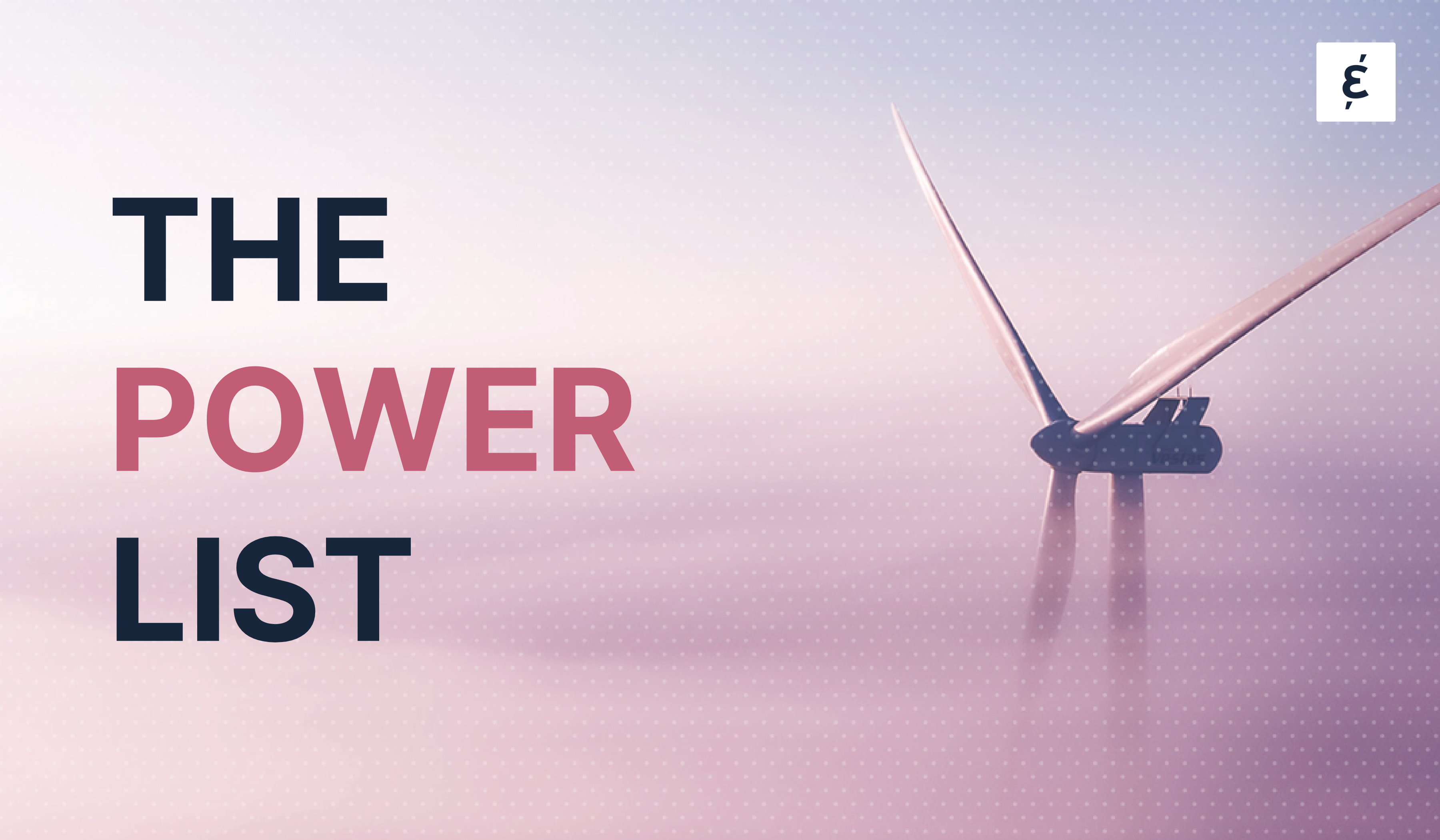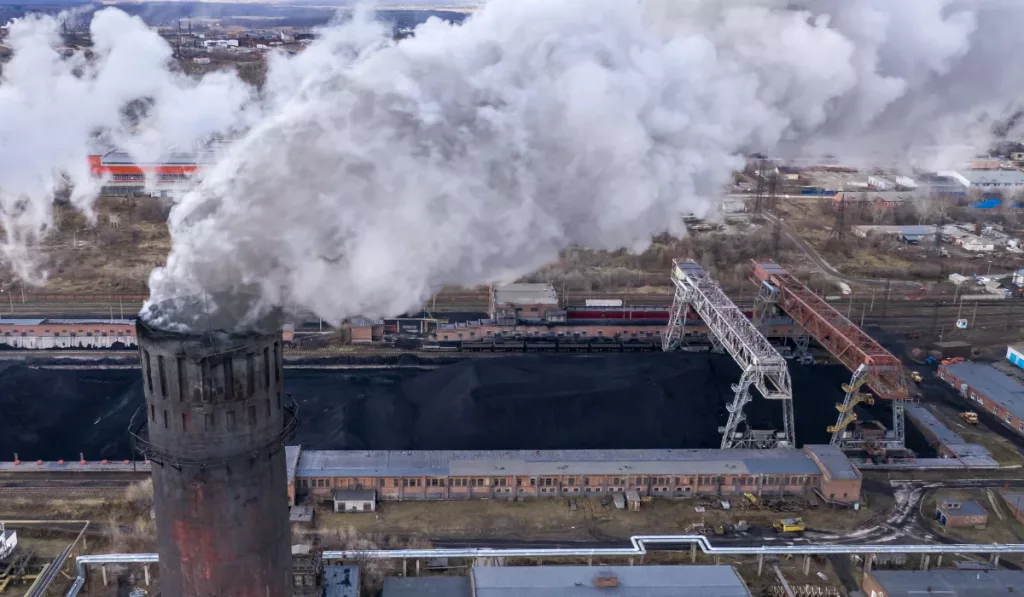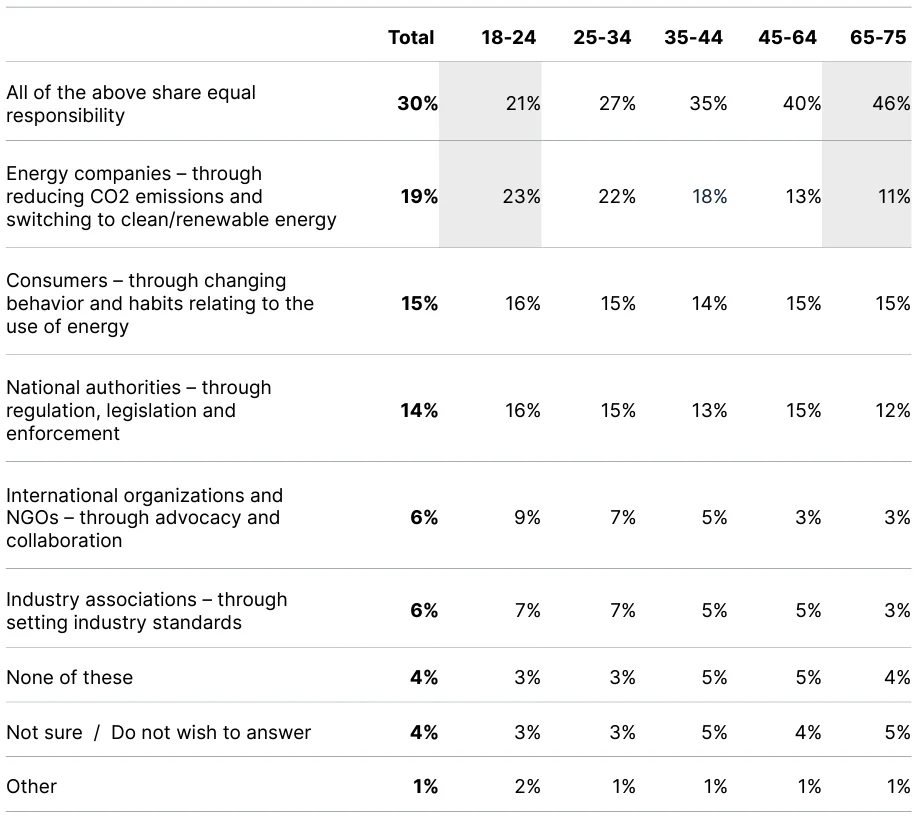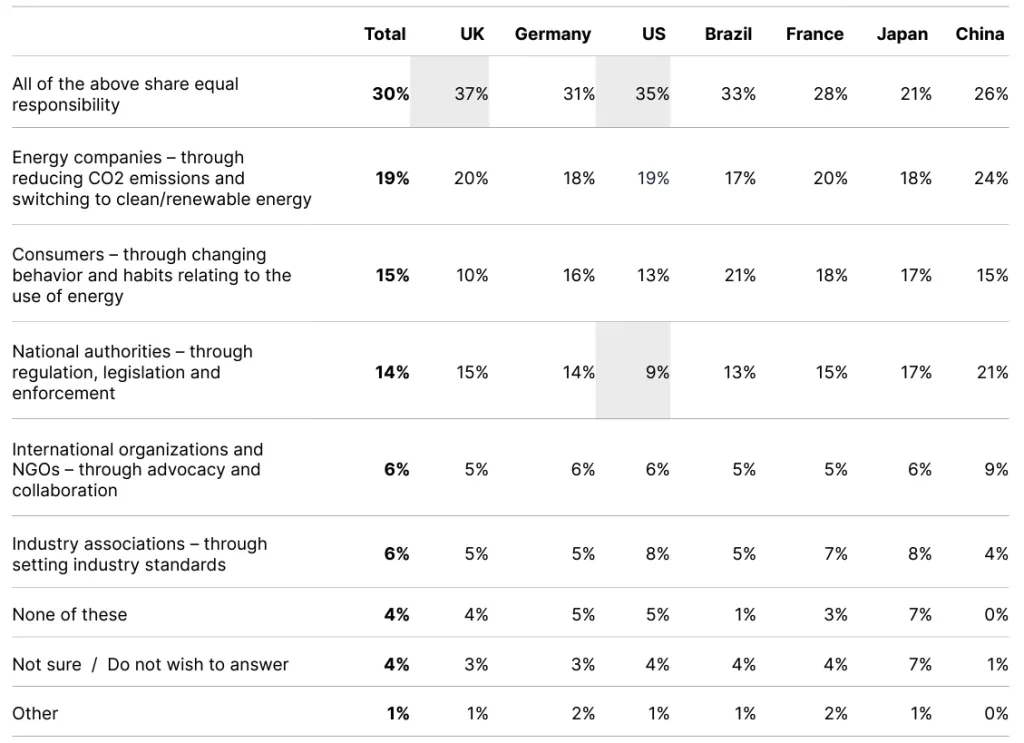

Who’s responsible for fighting climate change in the energy market?
Well, it depends on who you ask.
According to our recent report on the reputation of the energy sector, around one in five people (19%) worldwide say energy companies bear the most responsibility.
And that figure’s similar in every country we surveyed this year.
Interestingly, people are even less likely to point the finger at individual energy consumers (15%) or national authorities such as governments and legislators (14%).
The top answer, it turns out, is “all of the above”.
In fact, around a third of us (30%) say we all bear “shared responsibility” for fighting climate change – in the energy market, at least.
If it’s surprising that so few of us globally say governments should assume the burden, the figure is even lower in the United States.
There, just 9% of respondents think national authorities bear the most responsibility for fighting climate change.
This makes the recent letter sent to global leaders ahead of COP28 so interesting.
Signed by more than 131 businesses worldwide, the letter urges governments to phase out fossil fuels by the 2040s.
Signatories include Volvo Cars, BT, Vodafone, IKEA, eBay, Nestle, Iberdrola and Unilever.
According to Reuters, they have “called on leaders to set clear targets and timelines for phasing down and out unabated fossil fuels, and to back that up with policies enabling the rapid scaling of clean energy.”
Reuters also cited a recent poll finding that 82% of businesses see government regulation as the most important, or second most important, accelerator for the energy transition.
Those energy report figures again: globally, only 14% of people say national authorities bear “the most responsibility” for fighting climate change – and just 9% of Americans.
Sure, the two questions don’t compare apples with apples.
But they’re in the same orchard.
Taken together, the figures suggest a gap between what businesses think we should do about climate change and what the public thinks.
The question is how much of a problem this gap is.
That is, how much does it matter if the hopes and expectations of big business (“governments need to act now – and give us a coherent legal framework and policy”) don’t match those of the public (“it’s really on all of us to do something about climate change”).
How much does the lack of alignment – or the lack of public support for the position of big business – let governments off the hook, reduce the pressure on them, allow fissures to open between governments, or otherwise help water down their eventual policies and proposals?
And how much more impact would there be if public sentiment shifted away from the “all of the above” position and fell behind the “governments need to act now” position?
For now, at least, all these questions remain tantalizingly unanswerable.
EXPLORE THE DATA BELOW


© 2024 Group Caliber | All Rights Reserved | VAT: DK39314320